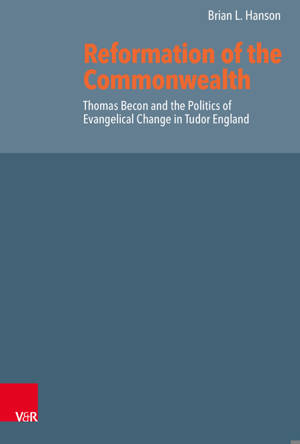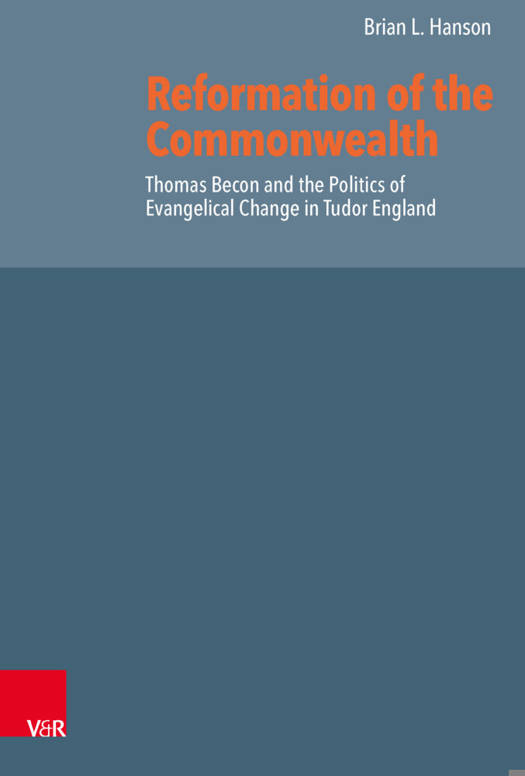
- Retrait gratuit dans votre magasin Club
- 7.000.000 titres dans notre catalogue
- Payer en toute sécurité
- Toujours un magasin près de chez vous
- Retrait gratuit dans votre magasin Club
- 7.000.0000 titres dans notre catalogue
- Payer en toute sécurité
- Toujours un magasin près de chez vous
Reformation of the Commonwealth
Thomas Becon and the Politics of Evangelical Change in Tudor England
Brian L Hanson
120,95 €
+ 241 points
Description
This study considers sixteenth century evangelicals' vision of a godly commonwealth within the broader context of political, religious, social, and intellectual changes in Tudor England. Using the clergyman and bestselling author, Thomas Becon (1512-1567), as a case study, Brian L. Hanson argues that evangelical views of the commonwealth were situation-dependent rather than uniform, fluctuating from individual to individual. His study examines the ways commonwealth rhetoric was used by evangelicals and how that rhetoric developed and changed. While this study draws from English Reformation historiography by acknowledging the chronology of reform, it engages with interdisciplinary texts on poverty, gender, and the economy in order to demonstrate the intersection of commonwealth rhetoric with Renaissance humanism. Furthermore, the experience of exile and the languages of prophecy and companionship directly influenced commonwealth rhetoric and dictated the priorities, vocabulary, and political expression of the evangelicals. As sixteenth-century England vacillated in its religious direction and priorities, the evangelicals were faced with a political conundrum and the tension between obedience and lawful disobedience. There was ultimately a fundamental disagreement on the nature and criteria of obedience. Hanson's study makes a further contribution to the emerging conversation about English commonwealth politics by examining the important issues of obedience and disobedience within the evangelical community. A correct assessment of the issues surrounding the relationship between evangelicals and the commonwealth government will lead to a rediscovery of both the complexities of evangelical commonwealth rhetoric and the tension between the biblical command to submit to civil authorities and the injunction to obey God rather than man.
Spécifications
Parties prenantes
- Auteur(s) :
- Editeur:
Contenu
- Nombre de pages :
- 250
- Langue:
- Anglais
- Collection :
- Tome:
- n° 58
Caractéristiques
- EAN:
- 9783525554548
- Date de parution :
- 16-09-19
- Format:
- Livre relié
- Format numérique:
- Genaaid
- Dimensions :
- 155 mm x 231 mm
- Poids :
- 488 g

Les avis
Nous publions uniquement les avis qui respectent les conditions requises. Consultez nos conditions pour les avis.






